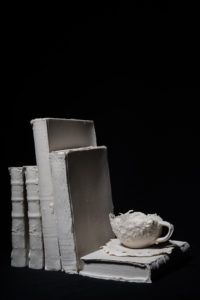
Chile 1980.
Sebastian Riffo-Montenegro artistic investigation is based upon the study on the existing relationship between image, message and receptor. By applying theories from anthropology, sociology and consumption behavior spheres, the artist’s technique accomplishes to express an elaborated critique on the culture of consumption and the creation of societal beliefs. The work’s defies and reworks the semiotic triad: sign, object and interpretant by challenging the viewer to step out of his/hers comfort zone developed upon today’s image consumption.
The work’s literal strokes and meticulous techniques seem to offer an unquestionable realism, where images, textures and palette are presented clear, frontal and concrete. Nonetheless, Riffo-Montenegro’s work inevitably urges the viewer to delve in to the series’ underlying mystery, reconsidering what is initially offered as mere imagery. Deliberately worked from photographic records, the artist’s pictorial imagery references directly to Walter Benjamin’s Mechanical Reproducibility theory, which defines our existing consumer society. Consequently, Riffo-Montenegro’s series acts as a catalyst towards the critic on unconscious imagery consumption and the construction societal beliefs. Beliefs that are governed by our own social pillars, which ultimately deform our aptitude and right for free will. Worked from the palette selection, light control and pictorial techniques, absence is paradoxically present in his work, operating as an even clearer sign towards this critique.
Sebastian Riffo-Montenegro manages to both veil and reveals the image, frankly referencing socio-cultural icons that historically have molded our unconscious discourse. Through these pictorial allegories, the work’s provokes the necessity to unveil the imagery, to discern and comprehend a new significance, reconsidering and awakening the tacit human condition of free will.
[MIAMI, UNITED STATES]
224 NW 71st St
Miami, FL 33150 / EEUU
+1 (786) 498-8706
info@mahara-co.com
[FOLLOW US]
©2024 | Mahara+Co, All right reserved